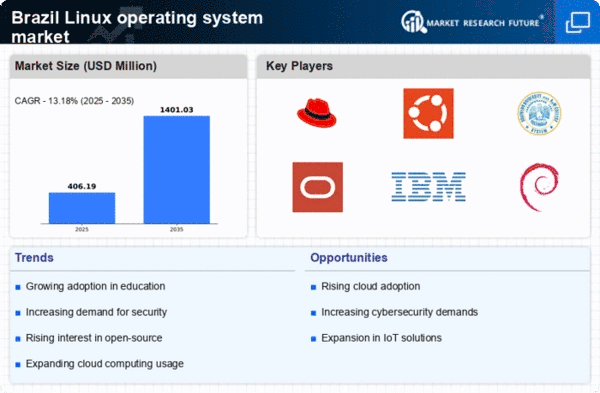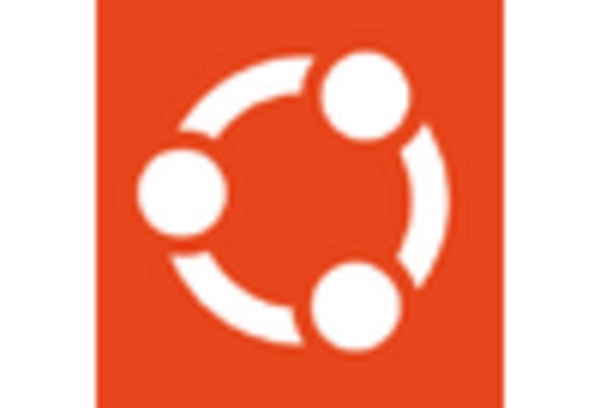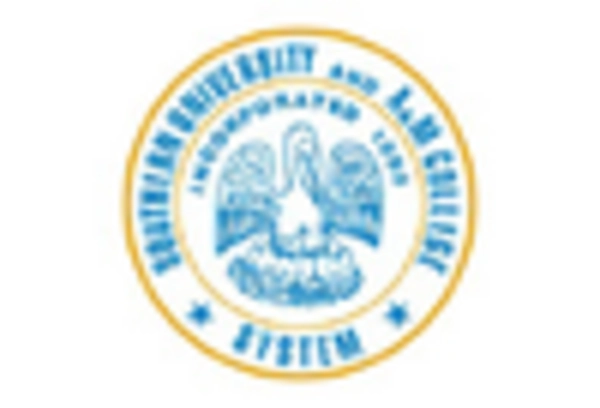Government Initiatives and Support
Government initiatives in Brazil play a crucial role in promoting the linux operating-system market. Various programs aimed at fostering technological innovation and digital inclusion have been established, encouraging the use of open source software. For instance, the Brazilian government has implemented policies that advocate for the adoption of linux in public institutions, which has led to increased awareness and acceptance among the general populace. This support not only enhances the credibility of linux but also stimulates local development and customization of solutions tailored to Brazilian needs. Consequently, the Linux operating system market is poised for expansion as government backing continues to drive adoption across various sectors.
Cost Efficiency of Open Source Solutions
the Linux operating system market in Brazil benefits from the cost efficiency associated with open source solutions. Organizations are increasingly drawn to linux due to the absence of licensing fees, which can significantly reduce operational costs. In Brazil, where budget constraints are prevalent, the adoption of linux systems allows businesses to allocate resources more effectively. A report indicates that companies utilizing linux can save up to 30% on software expenses compared to proprietary systems. This financial advantage is particularly appealing to small and medium enterprises (SMEs) that seek to optimize their IT budgets while maintaining robust performance. As a result, the linux operating-system market is likely to experience growth driven by the demand for cost-effective solutions that do not compromise on quality.
Increased Collaboration Among Developers
The linux operating-system market in Brazil is witnessing increased collaboration among developers, which is fostering innovation and enhancing the ecosystem. The open source nature of linux encourages community-driven development, allowing developers to contribute to projects and share knowledge. This collaborative environment not only accelerates the development of new features but also improves the overall quality and security of linux distributions. In Brazil, local developer communities are actively engaging in projects that cater to regional needs, which may lead to a more tailored user experience. As collaboration continues to thrive, the linux operating-system market is likely to benefit from a diverse range of solutions that meet the demands of various industries.
Technological Advancements and Innovation
Technological advancements are driving innovation within the linux operating-system market in Brazil. The rapid evolution of cloud computing, artificial intelligence, and the Internet of Things (IoT) has created new opportunities for linux-based systems. Companies are increasingly leveraging linux to develop scalable and flexible solutions that can adapt to changing technological landscapes. The integration of linux with emerging technologies is likely to enhance its appeal among developers and enterprises alike. As Brazilian businesses seek to remain competitive in a fast-paced digital environment, the demand for innovative linux solutions is expected to rise, further propelling the growth of the linux operating-system market.
Growing Demand for Cybersecurity Solutions
The increasing focus on cybersecurity in Brazil has a notable impact on the linux operating-system market. As cyber threats become more sophisticated, organizations are seeking robust and secure operating systems to protect their data. Linux is often perceived as a more secure alternative to other operating systems, which is particularly appealing to sectors such as finance and healthcare that handle sensitive information. A survey indicates that approximately 45% of Brazilian companies are prioritizing cybersecurity measures, leading to a surge in the adoption of linux-based solutions. This trend suggests that the linux operating-system market may continue to grow as businesses prioritize security in their IT infrastructure.
















